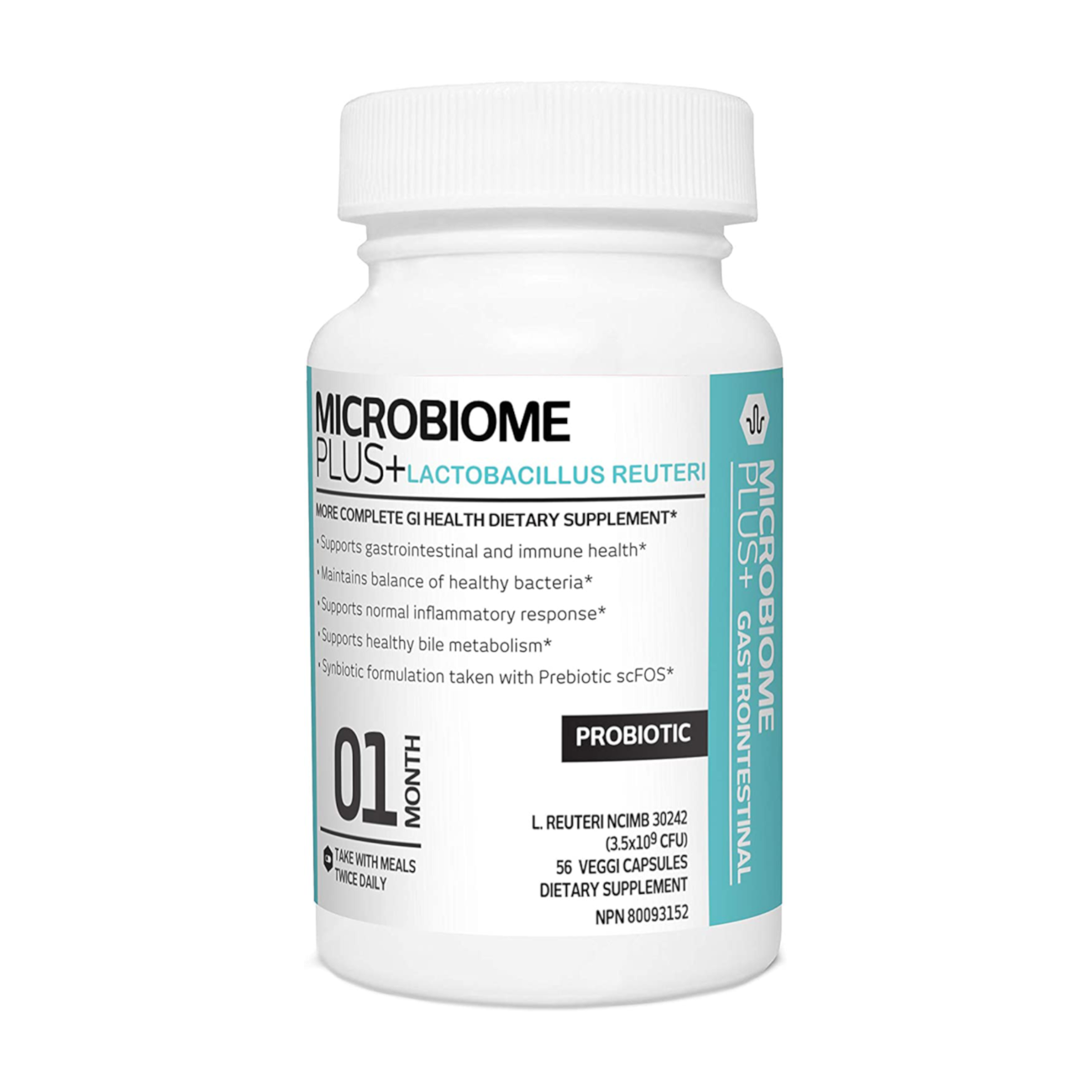Overview
While it is okay to be sad at times, being depressed more often can have serious consequences on your well-being. Depression carries a major burden. It can be severe enough to interrupt your daily social and occupational life. The weird fact about depression is that it doesn’t always appear as just being sad, excessive crying or disinterest. It can show up as other physical symptoms like excessive fatigue, bodily pains, headaches, and memory issues. This makes us wonder about other physical problems, which ignores the main problem ̶ depression. Unfortunately, not every depressed person can cope with this sad feeling that mandates anti-depressant treatment.
Though anti-depressants are essential for treating major depression, research shows that live bacteria may also have a good amount of impact on your mood.
The two-way Street between the Gut and Brain
The predominant way by which probiotics affect our brains is via the gut-brain axis. [1] The gut microbial composition can influence our brain chemistry and subsequently our mood and behavior. Likewise, people who are more depressed or anxious may have an altered microbiome composition with plenty of bad bugs but a lack of good ones. [2]
This two-way communication between the gut microbiome and the brain is also evidenced by the co-occurrence of IBS with anxiety and depression. [3] Most people with IBS experience depression and/or anxiety and vice versa. Where probiotics offer a great deal of benefit and optimize the quality of life in IBS, they can also relieve the depressive symptoms, making you happy. [4]
The link between Gamma-Aminobutyric Acid (GABA) and Probiotics
The gut bacteria are also known to impact unique kind of receptors (sensors) in our brains called GABA. GABA is a brain chemical that binds to its receptors and calms down our mind, nerves, and muscles. If the production of these GABA receptors is altered, the mind starts behaving weirdly. This can culminate in mental ailments like depression and anxiety. [5]
Experts have revealed that probiotics can control our emotional behavior via increasing the expression (production) of GABA receptors. [6] Intriguingly, some species of lactic acid bacteria are found to produce GABA, [7] and thereby, relax you. Because of their direct communication with the mental activity, probiotics are also referred to as “psychoprobiotics.” The research work on mental illness and microbiome, however, has been largely conducted only on animals.
The Damaged Gut Barrier, Depression, and the Impact of Probiotics
Depression tends to compromise your gut barrier. [8] On top of that, factors such as psychological stress, high-intensity workouts, and a diet high in unhealthy fats and sugar, further damage the intestinal barrier. All these factors give access to food allergens, environmental toxins, and toxins of harmful microbes, such as lipopolysaccharide (LPS). Even small amounts of LPS in your system can provoke depressive symptoms. [7] LPS also negatively impacts the levels of brain chemicals, primarily tryptophan and zinc. Reduced levels of both these nutrients are implicated in the disease process of depression. [9]
Probiotics and Serotonin
More importantly, some probiotics can raise the levels of tryptophan ̶ an amino acid taken from the diet that our body converts into serotonin (the “happy” brain chemical). [10]
Deficiency of serotonin is the major biological cause of depression. Not only does its lack make you sad but also deprives you of sleep, both of which can be improved by supplementation of certain probiotics.
References
- Carabotti M, Scirocco A, Maselli MA, Severi C. The gut-brain axis: interactions between enteric microbiota, central and enteric nervous systems. Annals of Gastroenterology : Quarterly Publication of the Hellenic Society of Gastroenterology. 2015;28(2):203-209.
- Neufeld KM, Kang N, Bienenstock J, Foster JA. Reduced anxiety-like behavior and central neurochemical change in germ-free mice. Neurogastroenterol and Motility. 2011;23(3):255-64, e119. doi: 10.1111/j.1365-2982.2010.01620.x.
- Dinan TG, Cryan JF. Melancholic microbes: a link between gut microbiota and depression? Neurogastroenterology and Motility. 2013 ;25(9):713-9. doi: 10.1111/nmo.12198.
- Pinto-Sanchez MI, Hall GB, Ghajar K et al. Probiotic Bifidobacterium longum NCC3001 Reduces Depression Scores and Alters Brain Activity: A Pilot Study in Patients With Irritable Bowel Syndrome. Gastroenterology. 2017;153(2):448-459.e8. doi: 10.1053/j.gastro.2017.05.003.
- Carding S, Verbeke K, Vipond DT, Corfe BM, Owen LJ. Dysbiosis of the gut microbiota in disease. Microbial Ecology in Health and Disease. 2015;26:10.3402/mehd.v26.26191. doi:10.3402/mehd.v26.26191.
- Bravo JA, Forsythe P, Chew MV, et al. Ingestion of Lactobacillus strain regulates emotional behavior and central GABA receptor expression in a mouse via the vagus nerve. Proceedings of the National Academy of Sciences of the United States of America. 2011;108(38):16050-16055. doi:10.1073/pnas.1102999108.
- Li H, Cao Y. Lactic acid bacterial cell factories for gamma-aminobutyric acid. Amino Acids. 2010;39(5):1107-16. doi: 10.1007/s00726-010-0582-7.
- Selhub EM, Logan AC, Bested AC. Fermented foods, microbiota, and mental health: ancient practice meets nutritional psychiatry. Journal of Physiological Anthropology. 2014;33(1):2. doi:10.1186/1880-6805-33-2.
- Hagmeyer S, Haderspeck JC, Grabrucker AM. Behavioral impairments in animal models for zinc deficiency. Frontiers in Behavioral Neuroscience. 2014;8:443. doi:10.3389/fnbeh.2014.00443.
- Wallace CJK, Milev R. The effects of probiotics on depressive symptoms in humans: a systematic review. Annals of General Psychiatry. 2017;16:14. doi:10.1186/s12991-017-0138-2.










